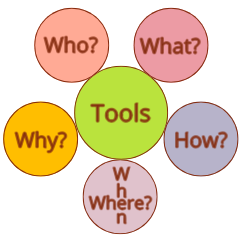Where/Our library: Difference between revisions
robbiemcclintoc.org>Robbie No edit summary |
m 1 revision imported |
||
(No difference)
| |||
Latest revision as of 13:25, 3 November 2024
Our library
A Place to Study is not a library, but we have one. It contains many of the resources with which we study. Currently it holds a sparse, initial collection as part of developing our prototype. It lacks lots that should be there, includes perhaps some things that should not be there, and what's there tilts perilously towards the work of dead, white, Western males. And further, we've been acquiring resources for the library in textual media faster than audio and visual media. With time, we will right these imbalances, less by getting rid of what's over weighted, but by building up what's underweight. All that is as it is: the caterpillar does not look like the butterfly.
We follow our principle: To begin, BEGIN. We start adding materials to our library, believing they may have special value to those seeking self-formation and liberal learning in the digital commons. As we do that, we start to manifest our ignorance. Does what we have included really have that special value? What further resources, which may have that value, should we include? With these further beginnings, we reiterate the questions, and by proceeding to develop our library, we do not settle those question, we renew and deepen them through our new additions and subtractions to the collection, furthering its beginnings.
We don't fully transcend ignorance or reach completion, hence it's long been said, the road is better than the inn.
Thus study is always beginning in ignorance; its resources always growing in incompletion. Acknowledging that infinite regress, students — residents and stewards — have a special responsibility in maintaining and developing A Place to Study. We cannot simply outgrow our biases. We need to cope with our ignorance and to set potential criteria for inclusion and exclusion for a library supporting self-formation and liberal learning in the digital commons.
In summing how he had sought to study culture and communication, Richard Hoggart enunciated some basic rights, which can serve us well building our library — a commitment to "the right of each of us to speak about how we see life, the world; and so the right to have access to the means by which that capacity to speak may be gained. The right, also, to try to reach out and speak to others, not to have that impulse inhibited by social barriers..., the right of wider access to higher education,... for wider access also to the arts as the most scrupulous explorations we can make of our personalities and relationships, and of the nature of our societies, and, as a support to all this, the best uses of mass communications."[1]
Now some will say, "Wait! Don't we all have those rights? Look at social media 2.0. Nearly everyone is using it. Its affordances give us the capacity to speak about life and the world, to reach out and speak to others. We enjoy greatly widened access to higher education and to the arts in all their forms, and to voluble talk of cultural, social, and political events, all through unparalleled systems of communication that Hoggart did not live long enough to witness." As a statement of the current situation, this assertion may seem factually true, speaking very generally, but it does not establish that this situation indicates the limits of our capabilities in the digital commons.
- ↑ Richard Hoggart, An imagined life: Life and Times, 1959-1991 (Oxford:Oxford University Press, 1992) p. 26.





